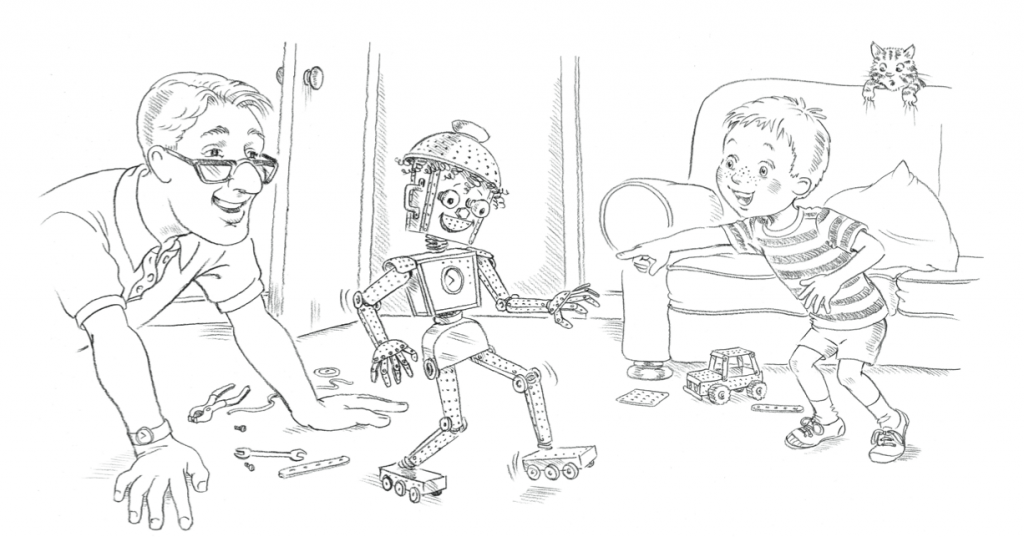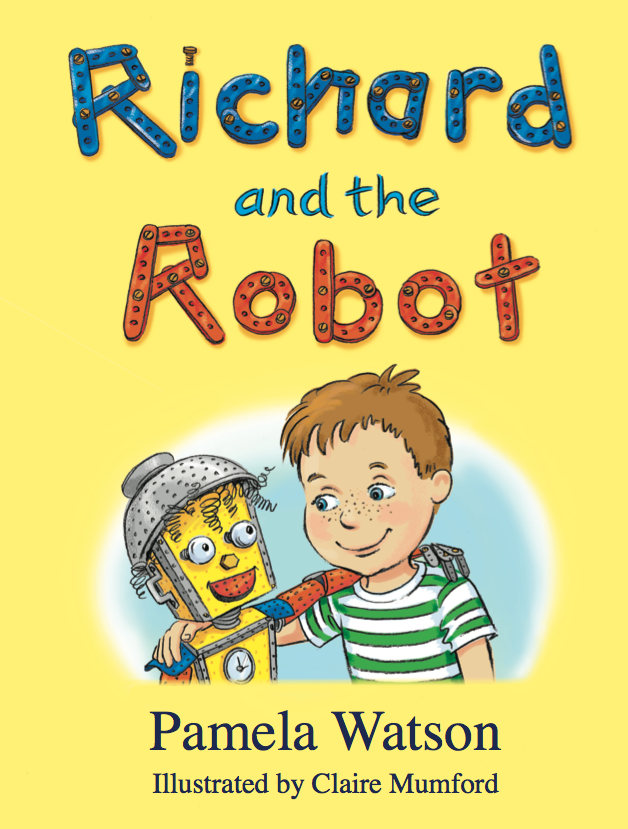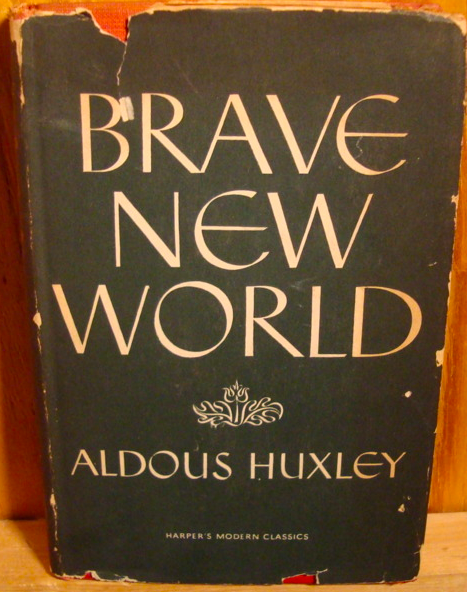Here is version one of the references (notes) for my book Digital vs. Human. This is the same as in the book, but with hyper-links. I will post an expanded version (version two) and possibly an update (version three) in due course.
Chapter 1: Society and Culture
‘Kim Yoo-chul and Choi Mi-sun’: Rhodri Philips, ‘Korean Baby Dies as Parents Kim Yoo-chul and Choi Mi-sun Raise Virtual Bub’, news. com.au, 5 March 2010
‘Being the most wired city on Earth’: Lauren Collins, ‘The Love App’, The New Yorker, 25 November 2013
‘One such robot is Paro’: Thomas Rogers, ‘Will the Elderly Ever Accept Care from a Robot?’, Slate, 17 August 2012
‘dangerous to foster relationships with machines’: Jerome Groopman, ‘Robots that Care’, The New Yorker, 2 November 2009
‘around half of current occupational categories may be lost to automation’: Derek Thompson, ‘What Jobs Will the Robots Take?’, The Atlantic, 23 January 2014 Aviva Hope Rutkin, ‘Report Suggests Nearly Half of US Jobs Are Vulnerable to Computerisation’, MIT Technology Review, 12 September 2013 ‘tech culture is focused on solving one problem’: Nick Bilton, ‘Is Silicon Valley in Another Bubble … and What Could Burst It?’, Vanity Fair, 1 Sept 2015
‘There are no excuses — everyone must be online’, Hannah Furness, ‘Martha Lane Fox: No-one Should Say “I Don’t Do the Internet”’, The Telegraph, 24 March 2015
‘four-year-old children are having therapy for compulsive behaviour’: Victoria Ward, ‘Toddlers Becoming So Addicted to iPads They Require Therapy’, The Telegraph, 21 April 2013
‘training potties can now be bought with iPad stands’: Rebecca Pocklington, ‘“iPotty” Combines Child’s Potty with iPad Holder — but It Doesn’t Sit Well with Parents’, Mirror, 11 December 2013
‘computers were everywhere except in the numbers’: Jeff Madrick, ‘The Digital Revolution That Wasn’t’, Harper’s, January 2014
‘The Two Cultures by C.P. Snow’: Alan Jacobs, ‘The Two Cultures, Then and Now’, Books & Culture, March/April 2014
‘number of close friends (people you can really rely on in a crisis)’: Amy Willis, ‘Most Adults Have “Only Two Close Friends”’, The Telegraph, 8 November, 2011
‘rentafriend.com’: Tim Dowling, ‘Would You Rent a Friend?’, The Guardian, 21 July 2010
‘4.7 million people in the United Kingdom do not have a close friend’: John Bingham, ‘Lonely Britain: Five Million People Who Have No Real Friends’, The Telegraph, 12 August 2014
‘33 per cent of Britons, including 27 per cent of 18-to-24-year-olds, felt “left behind”’: John Bingham, ‘“Connected” Generation as Lonely as the Elderly’, The Telegraph, 12 December 2014
‘The stability of these files is, of course, a problem’: Sarah Knapton, ‘Print Out Digital Photos or Risk Losing Them, Google Boss Warns’, The Telegraph, 13 February 2015
‘trust in others, including trust in government and the media, fell to
an all-time low’: ‘Interpersonal Trust in the US Hits a Historic Low’, Harvard Business Review, 15 October 2014 Edelman Trust Barometer, 2014
‘only 19 per cent of Millennials trust others’: ‘Millennials in Adulthood’, Pew Research Centre, 7 March 2014
‘People are coming home and getting on their computers instead of having sex’: April Dembosky, ‘With Friends Like These …’, Financial Times, 19 May 2012
‘have a relationship with a digital girlfriend’: Anita Rani, ‘The Japanese Men Who Prefer Virtual Girlfriends to Sex’, BBC News, 24 October 2013
‘many Japanese feel that they no longer have a future’: Andy Davis, ‘Generation J’, Prospect, 14 November 2012
‘290 million 14-to-15-year-olds globally are neither in education nor working’: ‘Generation Jobless’, The Economist, 27 April 2013
‘23-year-old inventor who sold Oculus Rift’: Josie Ensor, ‘Oculus Rift’s Palmer Luckey: “I Brought Virtual Reality Back from the Dead”’, The Telegraph, 2 January 2015
‘young people as “the miners’ canaries of society”’: Geoff Gallop, ‘The Pursuit of Happiness’, The Sydney Morning Herald/The Age, 22 December 2009
‘50 per cent of the people who have ever reached 65 years of age’: ‘Age Invaders’, The Economist, 26 April 2014
Chapter 2: Media and Communications
‘I’m not saying that I came from a perfect world in 1975’: Kylie Morris, ‘American Inmates Released after Decades in Prison’, Channel 4 News, 21 April 2015
‘Texting in particular has become an obsession’: Barbara McMahon, ‘Have You Got FOBO? — What Obsessive-compulsive Phone Checking Is Doing to Your Brain’, The Times, 18 July 2015
‘use of multiple screens at the same time could result in damage’: Sarah Knapton, ‘Second Screening “May Alter the Brain and Trigger Emotional Problems”’, The Telegraph, 24 September 2014
‘Prior to 1980, one in every 2,000 children in the US was believed to be autistic’: Benjamin Wallace, ‘Autism Spectrum: Are You on It?’, New York magazine, 12 May 2014 ‘According to Ofcom’: Tony Dokoupil, ‘The Digital Obsession That’s Driving Us iCrazy’, The Sunday Times, 15 July 2012
‘streaming funerals as a “cost effective” option’: Gabriella Swerling, ‘Live Streaming Takes Funerals into the Digital Age’, The Times, 27 December 2014 ‘constant exposure to one’s own hyper-connected image on social-media’: Hannah Furness, ‘Lionel Shriver: Social Media Makes Teenagers “Neurotic”’, The Telegraph, 22 April 2013
‘Astrid Berges-Frisbey’: Agnes Poirer, ‘Tale of French Youth Captures the Ennui of Its “Lost Generation”’, The Observer, 21 July 2013
‘increasingly at the expense of meaningful conversation’: Sherry Turkle, ‘The Flight from Conversation’, New York Times, 21 April 2012
‘The UK-based photographer Babycakes Romero’: Poorna Bell, ‘Photographer Babycakes Romero Captures “The Death Of Conversation” Due to Smartphones’, The Huffington Post, 27 October 2014
‘Israeli start-up called PrimeSense’: Paul Marks, ‘A Phone, or an All- seeing Sentry at Your Command?’, New Scientist, 24 July 2013
‘84 per cent of people worldwide’: Meena Hart Duerson, ‘We’re Addicted to Our Phones: 84% Worldwide Say They Couldn’t Go a Single Day without Their Mobile Device in Their Hand’, New York Daily News, 16 August 2012
‘Mona Lisa in the Louvre’: Jennifer Roberts, ‘The Power of Patience’, Harvard Magazine, November–December 2013 Amelia Gentleman, ‘Smile, Please’, The Guardian, 19 October 2004
‘Shazam is a real-time radar for what people are listening to’: Derek Thompson, ‘The Shazam Effect’, The Atlantic, December 2014
‘kings and queens known more for their image than their achievement’: Jill Neimark, ‘The Culture of Celebrity’, Psychology Today, 1 May 1995
‘Clinical psychologist John Lucas’: Margaret Farley Steele, ‘The Psychology of Celebrity Worship’, ABC News, 26 June 2009
Chapter 3: Science and Technology
‘We think of language, ideas, or history as real’: Jan Westerhoff, ‘Reality: The Definition’, New Scientist, 29 September 2012
‘giving robotic companions legal personhood’: Hannah Devlin, ‘Grasp Future and Give Robots Legal Status, EU Is Told’, The Times, 2 October 2014
‘SociBot-Mini’: Paul Marks, ‘Talk to the Head’, New Scientist, 29 March 2014
‘instead of robots looking like robots, they start looking like us’: Yves Gellie, ‘I, Robot’, Financial Times, 20 July, 2012
‘Rene Descartes’: George Zarkadakis, ‘Why Robot Sex Could Be the Future of Life on Earth’, The Telegraph, 20 January 2014 ‘technological doomsday’: Bill Joy, ‘Why the Future Doesn’t Need Us’,
Wired, 1 April 2000 ‘time is not real’: Michael Slezak, ‘Saving Time: Physics Killed It. Do We
Need It Back?’, New Scientist, 30 October 2013 ‘algorithms and automated online loans were partly responsible’: Hal Hodson, ‘No One in Control: The Algorithms That Run Our Lives’, New Scientist, 4 February 2015 ‘Cathal Gurrin’: Hal Hodson, ‘Lifelogging: This Is Your Life, on the Record’, New Scientist, 11 January 2014; Catherine de Lange, ‘Lifelogging: Crowdsourcing + Life Logs = Big Insights’, New Scientist, 8 January 2014
‘Forgetting is often more useful than remembering’: Rachel Metz, ‘My Life, Logged’, MIT Technology Review, 10 June 2014
‘control anything from computers to UAVs by simply moving the muscles’: Rachel Nuwer, ‘Armband Adds a Twitch to Gesture Control’, New Scientist, 25 February 2013
Chapter 4: economy and Money
‘great vampire squid wrapped around the face of humanity’: Matt Taibbi, ‘The Great American Bubble Machine’, Rolling Stone, 5 April 2010
‘around two-thirds of the money made in developed countries was typically paid as wages’: Noah Smith, ‘The End of Labour: How to Protect Workers from the Rise of Robots’, The Atlantic, 14 January 2013
‘Large basement developments’: Ed Vulliamy, ‘Development Hell: How the Upmarket Vandals Ruined My Childhood Streets’, The Observer (Guardian), 22 September 2013 ‘a law called Lex Sumptuaria’: India Knight, ‘For Better, for Worse, for Richer, for … Remind Me, Daddy, What’s Poorer?’, The Sunday Times, 16 June 2013
‘global poverty has been reduced by half in 20 years’: ‘Poverty: Not Always with Us’, The Economist, 1 June 2013
‘the on-demand economy is efficiently connecting people selling certain skills’: Yochai Benkler, ‘The Death of the Company Reignites the Battle between Capital and Labour’, Financial Times, 24–25 January 2015
‘Wang Yue’: ‘The Unkindness of Strangers’, The Economist, 27 July 2013 See here too. ‘focusing more attention on their own needs at the expense of others’: Daisy Grewal, ‘How Wealth Reduces Compassion’, Scientific American, 10 April 2012 ‘decline in economic wealth promotes collectivism’: Heejung Park, Jean Twenge, and Patricia Greenfield, ‘The Great Recession: implications for adolescent values and behaviour’, Social Psychological and Personality Science, 6 March 2014 and here.
‘28 minutes per month travelling to ATMs’: Peter Spence, ‘Apple Wants the Money in Your Pocket’, The Telegraph, 13 September 2014
‘the use of cash is expected to fall by a third by 2022’: Neasa MacErlean, ‘On the Money’, Business Life, September 2014. No link.
‘QE’: Lian Halligan, ‘History Will Surely See QE as a Major Mistake’, The Telegraph, 1 November 2014
‘Everyone wanted a dictatorship’: Richard Evans, ‘A Middle Class Revolt?’, Prospect, September 2013
Chapter 5: Healthcare and Medicine
‘Oscar Pistorius’s “Cheetah” legs’: Catherine de Lange, ‘We are Already Superhuman’, New Scientist, 15 August 2012
‘memory implants or e-pills’: Sally Adee, ‘Memory Implants: Chips to Fix Broken Brains’, New Scientist, 4 June 2014
‘give away up to £5,000 worth of personal data every year’: Jamie Bartlett, ‘Little Brothers are Watching You’, The Spectator, 7 December 2013
‘medically accurate digital body double’: Linda Geddes, ‘In Sickness and in Health’, New Scientist, 15 March 2014. No current link.
‘physical activity levels have fallen by 20 per cent over the past 50 years’: Laura Donnelly, ‘Lazy Britain: We Will Soon Use Little More Energy than If We Stayed in Bed’, The Telegraph, 31 January 2014
‘children today are considerably less fit than their parents’: Richard Gray, ‘Children 300 Yards behind Generation of ’75’, The Telegraph, 20 November 2014
‘malignant brain tumours’: Stephen Adams, ‘Mobile Phones Cause “Five- fold Increase in Brain Cancer Risk”’, The Telegraph, 30 June 2011; ‘Mobile Phones and Children’, The Weekend Australian Magazine, 23–24 April 2011
‘wi-fi signals could be having a serious impact on health’: Florence Waters, ‘Is Wi-fi Making Your Child Ill?’, The Telegraph, 9 May 2015
‘“extremely powerful effect” on sleep length and quality’: Tristan Kirk, ‘Less Sweet Dreams after iPad Reading’, The Telegraph, 23 December 2014
‘25 per cent drop in bed days of care’: Randall Stross, ‘Tracking Vital Signs, without the Wires’, The New York Times, 3 September 2011
‘1970 to 2009, spending increased by around 9 per cent per annum’: Jonathan Rauch, ‘The Home Remedy for Old Age’, The Atlantic, December 2013
‘the supply of technology drives demand’: Bjorn Hofmann, ‘Too Much Technology’, British Medical Journal, 21 February 2015 PDF here.
‘trying to avoid what’s been called the death problem’: Mick Brown, ‘Peter Thiel: The Billionaire Tech Entrepreneur on a Mission to Cheat Death’, The Telegraph, 19 September 2014
‘Demis Hassabis’: Murad Ahmed, ‘Lunch with the F T: Demis Hassabis’, Financial Times, 30 January 2015
‘children wouldn’t be distracted by snowflakes falling outside’: ‘Primary School Bans Children Looking at Snow as It Is “Too Distracting”’, The Telegraph, 8 February, 2015
‘our cells and tissues are becoming just another brand of hardware to be upgraded’: Kim Tingley, ‘The Body Electric’, The New Yorker, 25 November 2013
‘A thoroughly modern malady’: Laura Donnelly, ‘Anxiety: A Very Modern Malaise’, The Telegraph, 15 April 2012
‘between 2 per cent and 4 per cent of a population would typically suffer from an anxiety-related condition’: Sophie McBain, ‘Anxiety Nation: Why Are So Many of Us So Ill at Ease?’, New Statesman, 17 April 2014
‘nervous disorder’: Bob Holmes, ‘Worried Sick: What’s Up with Today’s Rampant Anxiety?’, New Scientist, 5 February 2014
‘retired 89-year-old art teacher’: Claire Ellicott, ‘Teacher Died at Dignitas because She Couldn’t Bear Modern Life: Healthy Spinster’s Despair at Fast Food, Email, and Lack of Humanity’, Daily Mail, 6 April 2014
‘self-harm has become the main cause of death for people aged 15 to 49’: Tony Dokoupil, ‘Why Suicide Has Become an Epidemic — and What We Can Do to Help’, Newsweek, 23 May 2013
Chapter 6: Automotive and Transport
‘17 per cent of pedestrian deaths’: ‘When the Grannies Get Going’, The Economist, 14 July 2012; Ann Brenoff, ‘Elderly Driving: AARP Study Looks at What Happens When Boomers Hang Up Their Car Keys?’, The Huffington Post, 10 November 2012
‘the biggest orderly rollout of forward-facing cameras’: ‘Kojak Moments’, The Economist, 23 August 2014
‘In 2011, distracted drivers killed 3,300 people in the US’: Jeff Hecht, ‘Just Hang Up and Drive’, New Scientist, 20 July 2013
‘broadly shared by workers, consumers and owners of capital’: ‘To Those That Have Shall Be Given’, The Economist, 4 October 2014
‘A pilotless airliner is going to come’: Philip Ross, ‘When Will We Have Unmanned Commercial Airliners?’, IEEE Spectrum, 29 November 2011
‘faults in FADEC had been found that were “positively dangerous”’: Tony Collins, ‘Crash of Chinook ZD576 — The 16-year Campaign for Justice’, Computerworld UK, 13 July 2011 Also here.
Chapter 7: education and Knowledge
‘illusion of intelligence’: Karl Taro Greenfeld, ‘The End of Cultural Literacy’, International New York Times, 27 May 2014 ‘test results are pursued at the expense of a rounded education’: Ollie Gillman, ‘Eton Headmaster Slams “Exasperating” A-level and GCSE Exams and Says Teacher Training is “a Mess”’, Daily Mail, 19 May 2015; Tony Little and Anthony Seldon, ‘How to Fit Our Pupils for the 21st Century’, Insight, June 2015
‘OECD study of students in 70 countries’: Sean Coughlan, ‘Computers “Do Not Improve” Pupil Results, Says OECD’, BBC News, 15 Sept 2015 And here.
‘210 child prodigies’: Alex Proud, ‘Your Child Is Not a Genius. Get Over It’, The Telegraph, 10 February 2014
‘education systems that focus on specialisation and limited definitions of intelligence’: Michael Brooks, ‘Invest in Minds Not Maths to Boost the Economy’, New Scientist, 17 December 2013
‘computers make rote procedures obsolete’: ‘Teaching Mathematics. Time for a Ceasefire’, The Economist, 1 February 2014
‘A meta-study of thousands of research papers’: Sarah Montague, ‘How Badly Do We Teach Our Children? Discuss’, The Telegraph, 13 August 2014
‘Most online students are rich, white, male, and already well educated’: Gayle Christensen and Brandon Alcorn, ‘A Lesson in Learning’, New Scientist, 8 March 2014
‘Better sex’: Simon Jenkins, ‘In This Post-digital Age, We Still Thrill to the Power of Live’, The Guardian, 20 June 2014
‘dedicated gamers will spend around 10,000 hours playing online by the time they turn 21’: Lucy Kellaway, ‘Online Life Can Teach Us about the Office’, Financial Times, 25 March 2012
‘study led by Patricia Greenfield’: Abigail Jones, ‘Children Who Switch Off Screens Reconnect with Emotional Cues’, Newsweek, 12 September 2014
‘Slow education like slow food’: Irena Barker, ‘Find the Time for Slow Education’, TES, 2 November 2012
‘spend too long indoors on screens’: Camilla Turner and Jonathan Leake, ‘UK Kids Stuck in the Great Indoors’, The Sunday Times, 13 January 2013
‘You’d think this school would be cluttered with computers. It isn’t’: Matt Richtel, ‘A Silicon Valley School That Doesn’t Compute’, The New York Times, 22 October 2011 ‘Michael J. Sandel’: Thomas Friedman, ‘Moral Philosophy Rocks’,
International Herald Tribune (NYT), 16 June 2011 ‘using mobiles before bed almost doubles the chance of teens have a bad night’s sleep’: Sarah Knapton, ‘Banish Smartphones and Computers from Bedroom to Get a Good Sleep, Say Scientists’, The Telegraph, 2 February 2015
‘classroom zombies’: Flic Everett, ‘Why It’s Not Just Teenagers Who Are Suffering from “PhoMo”’, The New Zealand Herald, 18 September 2015
‘10.00 a.m. starts’: Russell Foster, ‘Best Daze of Your Life’, New Scientist, 20 April 2013. Lost link. Try here.
Chapter 8: Work and employment
‘one of a million digital nomads’: John Bingham, ‘Internet Helps Million More Quit Office to Work from a Country Home’, The Telegraph, 4 June 2014
‘90 per cent of employees worldwide were doing jobs they didn’t really like’: Barry Schwartz, ‘Rethinking Our Work’, International New York Times, 29–30 August 2015
‘paper by Carl Frey and Michael Osborne’: Carl Frey and Michael Frey, ‘The Future of Employment: how susceptible are jobs to computerisation?’, Oxford Martin School, 18 September 2013
‘software will make one in three jobs redundant by 2025’: Merryn Somerset Webb, ‘Making Money in the Age of Machines’, Financial Times, 7 November 2015.
‘I feel like they don’t trust you to think like a human being’: ‘Amazon: The Truth Behind the Click’, Panorama (TV show), first broadcast 25 November 2013; Jodi Kantor and David Streitfeld, ‘Inside Amazon: Wrestling Big Ideas in a Bruising Workplace’, The New York Times, 15 August 2015
‘Predictive workforce analysis’: Don Peck, ‘They’re Watching You at Work’, The Atlantic, December 2013
‘sleep debt’: Peter Catapano, ‘Doing More May Mean Doing Less’, The New York Times, 17 March 2013. Lost link.
Chapter 9: Home and Family
‘future arrives in three flavours’: Edwin Heathcote, ‘Architecture: How Buildings Are Used in Sci-fi Films’, Financial Times, 22 November 2013
‘Instagram, for instance, changed its user agreement’: Douglas Heaven, ‘Lost in the Cloud: How Safe Are Your Online Possessions?’, New Scientist, 26 March 2013
‘how many people it takes to change a light bulb’: David Talbot, ‘The Light Bulb Gets a Digital Makeover’, MIT Technology Review, 20 May 2014
‘89 per cent of people would not be willing to pay one meagre dollar’: MacGregor Campbell, ‘This Means War’, New Scientist, 1 Sept 2012
‘10 per cent of older people do not have a single conversation with another human being’: ‘Esther Rantzen: Britain Is Too Busy to Speak to Older People’, The Telegraph, 27 May 2014
‘number of single-person households has risen by more than 100 per cent’: John Bingham, ‘Bridget Jones Takeover: Number of Singletons Growing Ten Times as Fast as Population’, The Telegraph, 8 May 2014
‘60 per cent of women over 30 in the UAE were unmarried’: ‘The Attraction of Solitude’, The Economist, 25 August 2012
‘KIPPERS’: Natasha Robinson, ‘It’s All Relative, as Research Reveals Generations Living Together’, The Australian, 15 April 2013
‘Danish Council of Ethics’: David Sexton, ‘Ready for Robolove: Could You Fall in Love with a Computer?’, Evening Standard, 14 February 2014
‘how we will protect nature as adults if we have no experience of nature as children’: George Monbiot, ‘If Children Lose Contact with Nature They Won’t Fight For It’, The Guardian, 20 November 2012
‘sales of vinyl’: Kadhim Shubber, ‘Back to Black: Vinyl Discs Enjoy Renaissance’, Financial Times, 24 October 2014 (subscription required to access link).
‘invisible digital other’: Erica Tempesta, ‘Sometimes It’s Easier to Fake It! Invisible Boyfriend App Gives Single Girls a Dream Man Who Will Always Text Back — So FEMAIL Put Him to the Test’, Daily Mail, 21 January 2015
‘50 per cent of people will have met their partner online’: India Knight, ‘Online Love Is a Many Splendoured Thing — Click Send’, The Sunday Times, 26 January 2014
‘no longer read to their children at night’: Graeme Paton, ‘Parents Told: Turn Off Phones and Talk to Your Children’, The Telegraph, 13 September 2013
Chapter 10: Art and War
‘a quote from the philosopher Bertrand Russell’: Jack Miles, ‘Why God Will Not Die’, The Atlantic, December 2014
‘more that they can’t be bothered (or don’t have the time)’: ‘God Not- botherers: Religious Apathy Reigns’, New Scientist, 30 April 2014
‘Using games to simulate war isn’t new’: P.W. Singer, ‘Meet the Sims … and Shoot Them’, Foreign Policy, 11 February 2010
‘danger that digital training will edge out real-life understanding’: John Markoff, ‘War Machines: Recruiting Robots for Combat’, The New York Times, 27 November 2010
‘80 per cent of apprehended burglars’: ‘Don’t Even Think about It’, The Economist, 20 July 2013
Chapter 11: Conclusions and Suggestions
‘world’s smallest music venue’: http://folkinabox.net/






